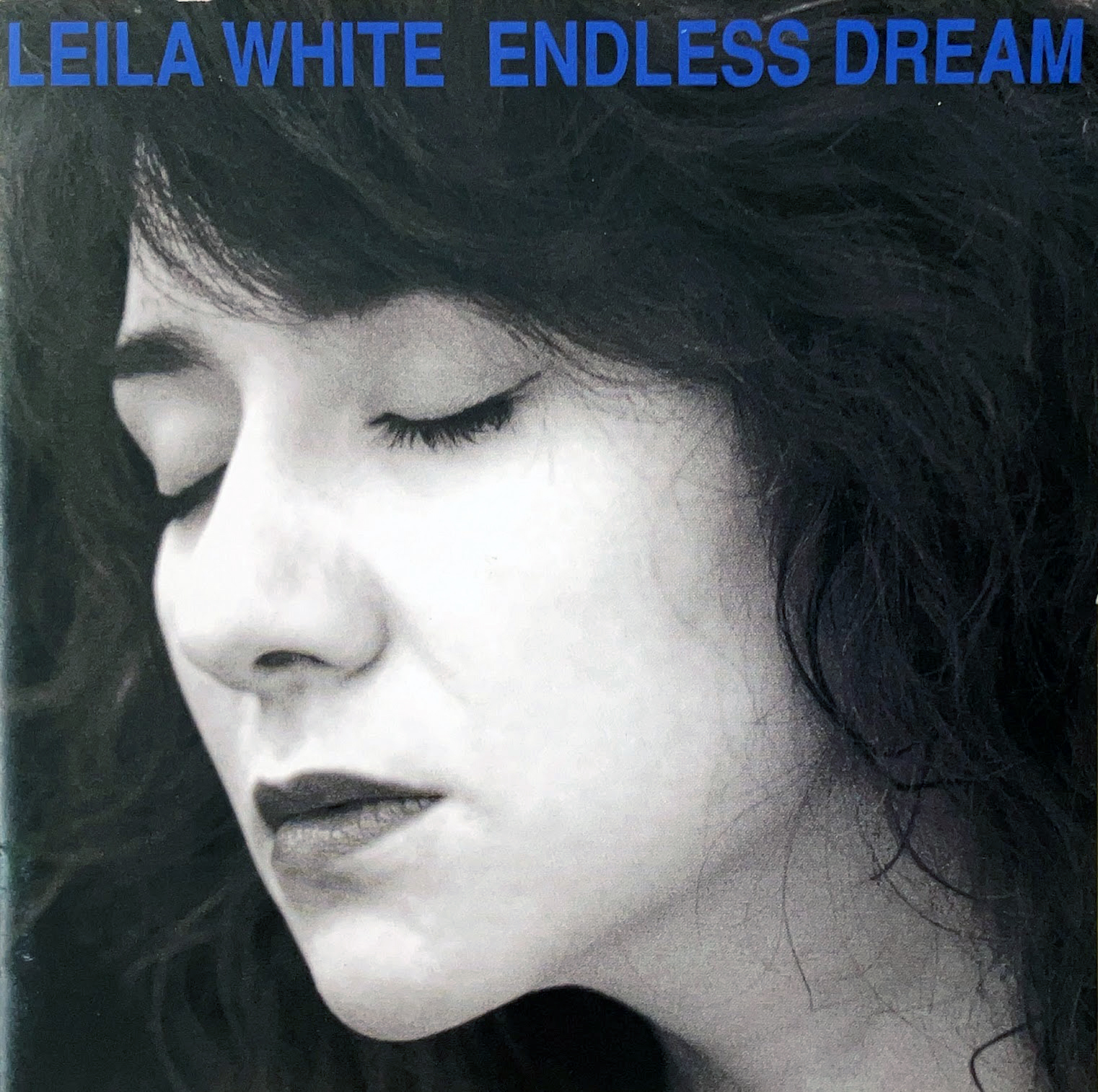I have a belief: whenever history fails you, find some poetry. I say this because, unfortunately for us, there is little oral or written background that I can find on Leila White’s Endless Dream. And I consider this a bit of a shame, since this is one of those Japanese pop albums that I consider impressive in conveying some of the interesting concepts and ideas hovering around a certain moment in cultural time. A mix of dreamy downtempo and urban soul, Leila White’s Endless Dream is a little-known gem of that mid-‘90s pop music milieu that warrants more rediscovery.
But let’s go back first to what we can know: Leila White was the “nom de plume” of one Yuki Rhinehart, who was born to an American father and a Japanese mother in Setagaya, Tokyo, Japan. The name “Leila White” itself was created by Yuki to honor her Hawaiian descent, the “lei” or “Leila” bit, and the color of snow, pointing at her name.

In her younger age, Yuki’s entry to music was through dancing – a practice she picked up with rigor. However, that would only last so long as her muse in music afforded her the opportunity to parlay her bilingual-speaking skills into the world of voice-over and FM radio production. For Japanese readers, it’s her long-lasting career as a radio personality that has placed her voice in your dial, helming various “adult-oriented” FM radio stations and hosting English-language conversation shows or economics-themed roundtables.
What we’re more interested in, though, is how that career led Yuki to create her debut, Endless Dream.
You see, it must have been in one of those radio studios that Yuki would have met one of the Samson Records bosses, Masao Suzuki or Mike Rogers. Under Samson Records, this label had found success under the unlikeliest of circumstances. Samson Records had invited and signed young Japanese artists and producers to craft music that could touch on what’s hot in the Western club and pop markets. The only unwritten catch: they had to create music under an “English language” pseudonym. In a way, they were trying to game the Japanese market – one in the thrall of paying beaucoup bucks for pricey imports – by creating a pseudo-Western import all-made and published in Japan itself.
This risky proposition – to promote Japanese bands as overseas artists – would pay off with one its first signings, Nadège, releasing music to great radio and sales success by creating new school French-sung chanson music with a hidden, heavy, Japanese touch. Yuki’s openness to give this idea a try gave her a better gambit: Yuki could actually present herself as the artist, without having to hide her mixed identity, as other roster mates would.
On this record, Yuki then going as Leila White, would work with some of the brilliant minds behind Nadège like Shintaro Ashizawa and Takuya Sugisawa, or with Victor Music producers (who would release the “Japanese”-released version of this disc) like Masakazu Uehata, who’d flesh out this mostly self-penned record with a few choice covers aimed at the club circuit. What makes the music worthwhile on Endless Dream are the brilliant touches and musicality Yuki brought to the table.
Seemingly inspired by the vocal style of Sarah Vaughan and by more modal jazz pop, Leila adds a certain floating quality to the dreamy dance music chosen to express her ideas. Opener, “In A Paradise”, comes close to outlining just what her groove was. It’s one that hovers in the afterglow of music you would hear coming from Les Disques du Crépuscule releases or in the burgeoning trip-hop or indie dance-pop scene of groups like Saint Etienne. Leila’s reimagining of Madonna’s “Borderline” would do double-duty as her debut single and on the record it provides us an opening to part of this album’s roots in house music and into introducing that flavor to Leila’s world.
The most impressive tracks are, of course, those like “You Were My Everything”, tracks that fit Leila’s far more urban and soulful singing style. There you get to hear the heavier sound of hip-hop fusing R&B letting Leila unfurl a more suave and intimate melodic line that keeps such a track hovering a bit gracefully out of time. Likewise, another original, Leila White’s “It’s Got To Be You” rides an equally impressive downtempo groove that can go from dance floor to bedroom in a way that is uniquely hers.
Leila (né Yuki) would eventually transition on to a major label to release albums that were more club-forward than as kaleidoscopic as what you get to hear here. However, only in Endless Dream can you hear her experiment freely and try out so many cool and different sonic outfits. Here you get the gorgeous neo-disco of “I’ll Be There For You” that in a perfect world should be soundtracking some fashion show at this very moment. Here you get to listen to the slinky, sexy, urban Japanese neo-soul of “May Be Some Day”.
And finally, on Endless Dream you get to experience the wonderfully mystery of the title track, a track that seems to translate or transmute the hypnotic, modal ambient jazz stylings of the ECM label (or Eberhard Weber) into a more bite-sized, avant-pop direction, ending the album proper in the haziest leftfield way through the notes on her electric piano.
So, what does this bit of history add up to? It adds up to, hopefully, doing my bit to get Yuki to step forward and share her side of the story. For now, at least we’re able to experience her Endless Dream.
